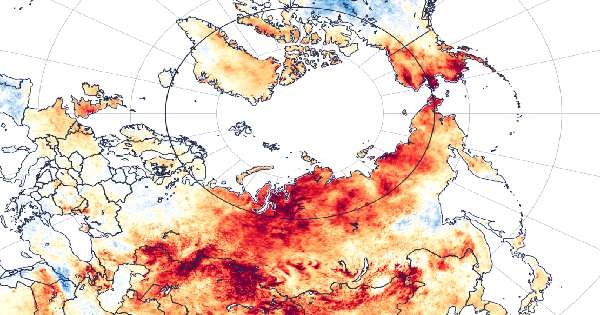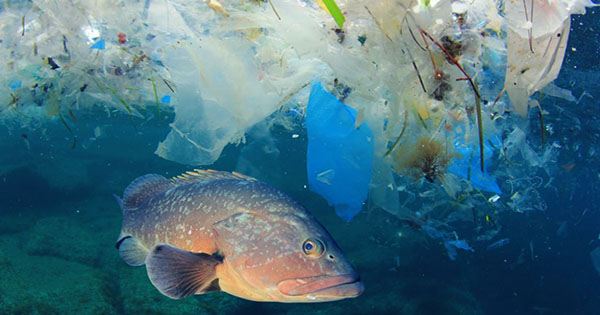As the urge to do something about the environment rises, so does the pressure on us to do something about it. We only have 32 months – less than three years – to get our act together, according to the latest Intergovernmental Panel on Climate Change (IPCC) study. Greenhouse gas emissions must reach a nadir by 2025. Carbon emissions must be reduced by 43% and methane emissions by a third by 2030. “It’s now or never if we want to keep global warming to 1.5 degrees Celsius (2.7 degrees Fahrenheit),” Jim Skea, the report’s co-chair, said in a statement.
Of course, there are numerous approaches of dealing with the situation. Agriculture, food systems, and individual diets, including veganism, are among them. Veganism is a contentious issue. While it is vilified by some, it is praised by others as a climate savior. People who adopt the lifestyle have a lower carbon footprint, and the more people who do so, the less we rely on animal agriculture, which has a bad reputation for damaging the environment. Veganism may have a good impact on the earth if a large enough percentage of the population adopts it, but can it *solve* climate change?
WHAT EXACTLY IS VEGANISM? Veganism is a way of life that eliminates all animal products from one’s diet, including meat, dairy, and eggs. While exact figures on the number of vegans worldwide are difficult to come by, some studies claim that there are 79 million vegans worldwide. According to reports, there were 9.7 million vegan Americans in the United States in 2019, a 30-fold increase in just 15 years.
CLIMATE CHANGE AND AGRICULTURE, What does it mean for the environment as the number of vegans continues to rise? To completely answer this question, we must first analyze agriculture’s impact on the globe. Agriculture and other land use, after electricity and industry, is the third major contributor of greenhouse gas emissions, according to the latest IPCC assessment.
Between 2007 and 2016, land use, including agriculture, accounted for 13 percent of carbon dioxide emissions, 44 percent of methane emissions, and 82 percent of nitrous oxide emissions. Animal agriculture, in particular, accounts for a significant portion of this. According to the Food and Agriculture Organization (FAO), livestock accounts for 14.5 percent of global greenhouse gas emissions, or around 7.1 billion tons of CO2 each year. Another study found that meat was responsible for roughly 60% of worldwide food-related greenhouse gas emissions.
The sector is a particularly prolific emitter of methane, which has a global warming potential (GWP) of up to 36 times that of carbon dioxide, and nitrous oxide, which has a GWP of about 300 times that of carbon dioxide. Animal husbandry not only contributes to greenhouse gas emissions, but it also causes large-scale deforestation, uses a lot of water, fertilizers, and land, and generates a lot of waste, all of which add to its negative environmental impact.
WHAT ARE THE BENEFITS OF VEGANISM FOR THE ENVIRONMENT? Many studies have been conducted to establish the impact of veganism on the environment, and the results are often contradictory. However, one thing is certain: plant-based diets have a lower environmental impact than animal-based ones.
Pete Smith, Professor of Soils and Global Change at the University of Aberdeen and Science Director of Scotland’s ClimateXChange, told IFLScience that plant-based foods have a 10-100 times lower impact on climate, energy, water pollution, air pollution, land use, and freshwater use than ruminant meat [sheep, cows, goats, etc]. “Vegan diets have half the environmental impact of conventional diets.” In terms of emissions, what does this mean?
Veganism is “one of the most powerful means of lowering one’s personal carbon footprint,” according to Dr. Marco Springmann, Senior Researcher on Environmental Sustainability and Public Health at the University of Oxford’s Nuffield Department of Population Health. According to one recent study, if the entire globe went vegan and stopped using animal agriculture, greenhouse gases would be stabilized for 30 years and 68 percent of carbon dioxide emissions would be offset for the remainder of the century. There have been a slew of other studies that claim similar conclusions – one estimates that a global shift to a vegan diet could reduce food-related emissions by 70%.
It is estimated that by 2050, it will have freed millions of square kilometers of land and reduced carbon dioxide emissions by 8 billion tons per year. Meanwhile, eating meat or seafood just once a month could save nearly 6 billion tons of CO2, while a “flexitarian” diet, which replaces three-quarters of meat and dairy consumption with plant-based alternatives, might save just over 5 billion tons.
Veganism would “reduce 14 percent global [greenhouse gas] emissions – and free up land for carbon sequestration – so probably more,” according to Smith. Of course, turning the entire world’s population to tofu tomorrow is neither realistic nor likely. However, the IPCC claims that every little bit helps when it comes to making more environmentally friendly food choices.
According to the newest assessment, “where appropriate, a move to diets with a higher share of plant protein, moderate intake of animal-source foods, and reduced intake of saturated fats could contribute to substantial reductions in GHG emissions.” “Benefits would also include reduced land occupation and nutrient losses to the environment, as well as improved health and a reduction in mortality from diet-related noncommunicable illnesses.”
















